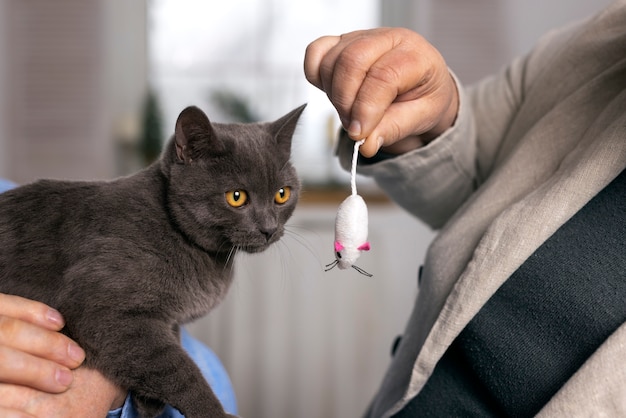Understanding Itching and Allergies in Cats | Express Vets Buford

If you’ve ever noticed your cat scratching, licking, or grooming excessively, it’s natural to be concerned. Cats are known for their fastidious grooming habits, but when that grooming turns into constant itching, it’s a sign that something might be wrong. Understanding the causes of itching and allergies in cats can help you provide the care your feline friend needs to feel comfortable again.
Itching in cats can be caused by a variety of factors, but one of the most common culprits is allergies. Just like humans, cats can develop allergic reactions to a wide range of substances. These allergens might include environmental factors like pollen, dust mites, or mold, or they could be related to food ingredients or flea bites. When a cat encounters an allergen, their immune system responds by releasing histamines, which can cause intense itching and discomfort.
Flea allergy dermatitis is one of the most common types of allergies in cats. Even a single flea bite can trigger a severe reaction in cats that are allergic to flea saliva. If your cat is allergic to fleas, you might notice hair loss, scabs, and red, inflamed skin in addition to the itching. It’s important to remember that fleas can be difficult to spot, especially in cats with thick fur, so regular flea prevention is crucial.
Food allergies are another potential cause of itching in cats. Some cats may develop sensitivities to certain proteins, grains, or additives in their diet. If food allergies are the problem, you might notice that your cat is not only itching but also experiencing gastrointestinal issues like vomiting or diarrhea. Identifying food allergies can be challenging, often requiring a careful elimination diet under the guidance of a veterinarian.
Environmental allergens can also be a major cause of itching in cats. These allergens can come from pollen, dust mites, mold, or even certain types of cleaning products or fabrics in your home. Cats that are sensitive to these allergens might develop atopic dermatitis, a condition characterized by chronic itching, redness, and skin lesions. Managing environmental allergies often involves reducing your cat’s exposure to the offending allergens, which may include using air purifiers, frequently washing bedding, and avoiding certain cleaning products.
Stress and anxiety can also contribute to itching in cats. Cats are sensitive creatures, and changes in their environment or routine can lead to stress-related behaviors, including over-grooming. This behavior can result in hair loss and skin irritation, making it look like your cat has a skin condition when, in fact, the root cause is psychological. Ensuring your cat has a stable, stress-free environment with plenty of mental and physical stimulation can help reduce these behaviors.
If your cat is experiencing persistent itching, it’s important to consult with a veterinarian to determine the underlying cause. A thorough examination, along with possible diagnostic tests, can help identify whether your cat’s itching is due to allergies, parasites, infections, or other underlying health issues. Once the cause is identified, your veterinarian can recommend appropriate treatments to relieve your cat’s discomfort.
At Express Vets Buford, we understand how distressing it can be to see your cat suffering from itching and allergies. Our team is dedicated to helping you find the best solutions to keep your feline friend comfortable and healthy. Whether it’s managing allergies, providing flea prevention, or addressing stress-related behaviors, we’re here to support you and your cat every step of the way.
If your cat is experiencing persistent itching, contact Express Vets Buford at (470) 326-5220 or visit us at 4108 Hamilton Mill Road, Suite 310,Buford, GA 30519 to schedule a consultation. Our experienced team is here to help diagnose the issue and provide effective solutions to keep your cat happy and healthy.



















